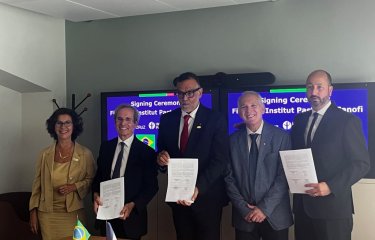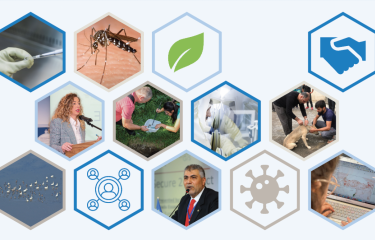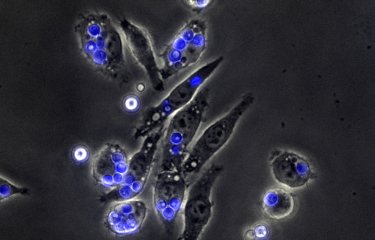Whooping cough is a highly contagious respiratory disease caused by the bacterium Bordetella pertussis, and which can be serious, or even fatal, for infants. Using a mathematical model, scientists from Honk Kong University and WHO have just published new estimates of the global weight of the disease. These new estimates indicate that the number of pertussis cases among children under 5 years of age has globally decreased from 30.6 million in 1999 to 24.1 million in 2014 and the number of deaths from 390,000 to 160,700. Africa remains the continent most affected by the disease with 33% of cases and 58% of deaths. "These tremendous advances prove the effectiveness of vaccination. However, they must be weighted, as they are based on the declarations from only 76 countries out of the 192 WHO members. The estimate of mortality varies from 38,000 to 670,000" explains Dr Nicole Guiso, a scientist internationally recognized for her expertise in pertussis (1).
This gap reflects the lack of pertussis surveillance in many countries. Since 2015, the Institut Pasteur has been implementing the PERILIC project (Pertussis In Low and Middle Income Countries) in 4 regions of the world. In partnership with the Institut Pasteur in Cambodia, Iran and Madagascar as well as the Agency of Preventive Medicine in Togo, this program will allow to estimate the duration of protection induced by a primary vaccination at 6-10-14 weeks. It will also allow to document the clinical and microbiological characteristics of the disease in infants under 6 months hospitalized with signs of pertussis and to investigate the source of contamination in the entourage of infants with a biologically positive pertussis diagnosis.
In particular, these data will be important for adapting the immunization strategy in resource-limited countries and determine the characteristics of the vaccines used. The technology needed to detect and identify the bacteria responsible for pertussis will be transferred for the first time to partner laboratories and health workers trained. The PERILIC project will thus constitute the basis for the establishment of sustainable pertussis surveillance in the partner countries and subsequently for other vaccine-preventable diseases.
(1) Chair of the Perilic Scientific Council





